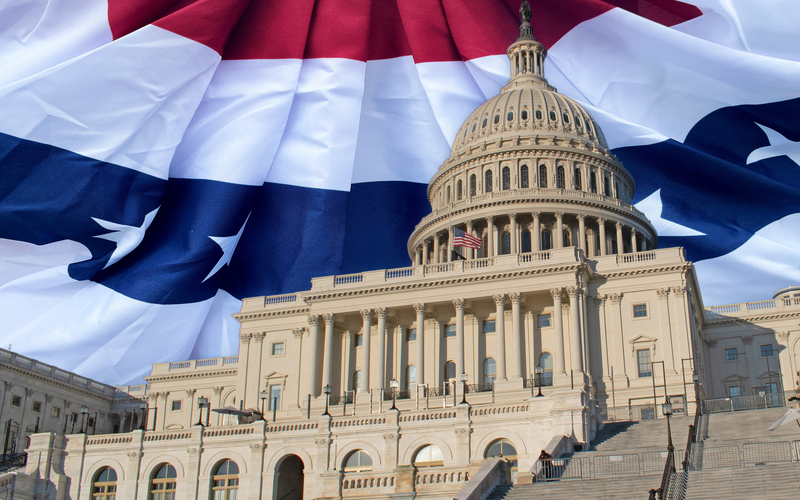Restoring Justice
Sign up for a six month free
trial of The Stand Magazine!
James Madison, the fourth president of the United States, who is widely considered the “Father of the Constitution,” knew how easily people in power could abuse authority.
“The essence of Government is power,” he declared in a December 1829 speech. “And power, lodged as it must be in human hands, will ever be liable to abuse.”
With that sobering truth in mind, the Center for Judicial Renewal (CJR) was created as a measure against abuse of power in the U.S. judiciary.
CJR, an arm of AFA Action – the governmental affairs affiliate of AFA – aims to restore the judiciary’s original role of interpreting laws based on the Constitution’s intended meaning. It counters the trend of judges reinterpreting or creating laws from the judicial bench.
The threat
The Stand spoke to Phillip Jauregui, senior counsel and director of CJR, who expressed his concerns about this violation of the separation of powers.
“Judges are supposed to make decisions according to legislative guidelines instituted by the people’s representatives,” he said. “When they do not and choose instead to engage in judicial activism, the will of the people – as expressed by the laws passed by their elected representatives – is negated.”
Jauregui cited the United States Supreme Court’s 2020 decision in Bostock v. Clayton County as a prime example of judges overstepping their role, claiming Justice Neil Gorsuch’s opinion extending Civil Rights Act protections to LGBTQ persons “seems to be driven more by his worldview on sexuality rather than the meaning of the written law.
“All Americans, no matter what their political party, values, or background may be, should be gravely concerned about this,” Jauregui stated emphatically.
The strategy
CJR undertakes a rigorous vetting process to combat judicial activism by identifying and ranking potential federal judicial nominees committed to a restrained, constitutionalist judicial philosophy. This process includes over 10,000 hours of exhaustive research into prospects’ records.
Jauregui explained, “Our process involves researching and ranking potential judges based on the ‘Ten Principles of a Constitutional Judge.’ This approach focuses on identifying judges with a strong, long-term track record of adherence to the Constitution’s original intent and the role of judges in interpreting, not making, laws.”
CJR’s process leaves no stone unturned, examining prospects’ judicial philosophy, views on religious liberty, personal faith and worldview, and other factors that could illuminate their approach to law and justice.
The future
Jauregui noted progress in adding constitutionalist judges to the federal judiciary, citing CJR’s research on current justices as well as potential justices and federal judges likely to be considered for the Supreme Court.
“CJR has proudly seen great progress toward the restoration of the judiciary,” said Jauregui. “We are optimistic about the future of the federal courts, and we believe God is moving to restore justice in our great nation through our courts.”
Ten Principles of a Constitutional Judge
- A judge’s Christian faith strongly predicts his or her constitutional interpretation.
- Rights originate from the Creator, not the government.
- Judges decide cases without overstepping into legislative functions.
- The original meaning of legal texts should guide judicial decisions.
- Courts’ primary role is to resolve cases, interpreting texts only as needed.
- Judicial review is for assessing the law’s constitutionality, not for rewriting laws.
- The Constitution, not court opinions, is the ultimate legal authority.
- Precedents should inform, not override, law when they conflict.
- Judges must aim for justice, avoiding extremes of activism or passivity.
- Courage is essential for aligning court practices with the Constitution.
Learn more at afaaction.net/cjr/10-principles-of-a-constitutional-judge, or watch Principles of a Constitutional Judge with Phillip Jauregui at stream.afa.net.
(Digital Editor's Note: This article was published first in the August 2024 print edition of The Stand.)

Sign up for a free six-month trial of
The Stand Magazine!
Sign up for free to receive notable blogs delivered to your email weekly.



















